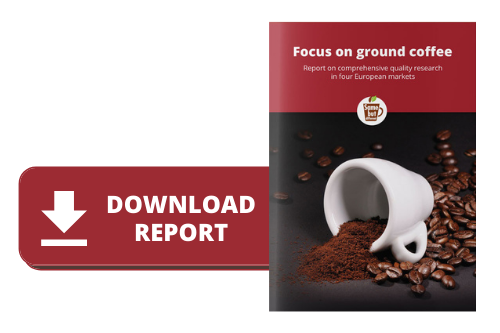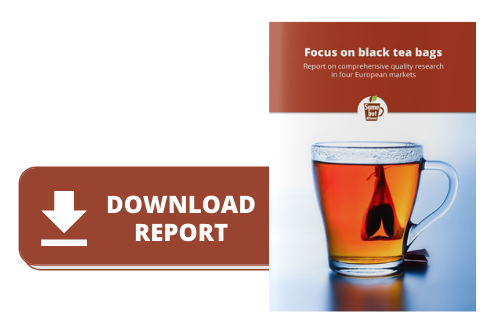Coffee and tea - what is their quality?
Coffee and tea – what is their quality?
You can find the answer to that question in our reports. In those reports, we present the results of testing 19 different brands of ground coffee and 20 brands of black tea in bags that were bought in Poland, Lithuania, Latvia, and Germany. We have also checked the so-called dual quality of products, e.g. whether the coffee and tea bought in Germany differs from that bought in Latvia, and that bought in Poland from the one available in Lithuania.
The results of independent tests of ground coffee and black tea in bags make it easier to choose products. They make it clear whether a higher price means higher quality. We already know which coffees and teas are most aromatic and how much caffeine they contain. We know if they contain pesticide residues or heavy metals.
But relax, the overall quality of all the products we test is good.
The following coffee brands, available on the Polish market, were sent to the laboratory: Kimbo, Jacobs Kronung, Dallmayr, Movenpick, Lavazza, Tchibo, Woseba, Bio Village, Sati Bio, Ikea Patar, Mc Cafe, as well as the following tea brands: Ahmad, Dilmah, Greenfield, Lipton, Teekanne, Tetley, Twinings, Dary Natury, and Lord Nelson.
A full assessment of the quality of these products can be found in our reports.
„We are pleased with the decent quality of the coffees and teas tested, but of course we hope that it will soon be even better! We test the food to find out its quality and to know if it is safe. We check whether the producers and sellers provide us with reliable information. By making the test results public, we want to encourage producers to raise their standards, and to help consumers make a conscious choice.” – says Paweł Rokicki, Founder and Managing Director of the Foundation of Consumers.
The benefits of tea and coffee
As it is well known, tea is one of the best sources of antioxidants. The phenolic compounds present in tea, called catechins, are very effective in neutralizing, i.e. inactivating free oxygen radicals, which contribute to many diseases of civilization. Numerous studies have shown the effect of tea catechins on inhibition of inflammatory processes, cancer, prevention of cardiovascular diseases, neurodegenerative diseases. Thanks to the content of these particular phenolic compounds, tea is an excellent and easily accessible preventive agent, supporting the proper functioning of the human organism.
Also coffee contains phenolic compounds that are good for health, especially positive acids such as chlorogenic acid, which shows strong antioxidant properties and reduces glucose absorption, which is important for diabetics, for example.
„We should take advantage of what nature has given us in the form of tea and coffee, but on the other hand we should make every effort to ensure that food is properly monitored for harmful ingredients so that we get from food what is 'medicine’ and not what is 'poison’,” says Monika Mieszczakowska-Frąc, Ph.D., Professor IO-PIB, Head of the Laboratory of Processing and Quality Assessment of Fruits and Vegetables at InHort.
What we should be careful about
From a consumer point of view, any food contamination is undesirable, even if its presence in products such as coffee and tea does not violate regulations.
That is why we pay attention to lead residues found in both coffee and tea. Lead occurs naturally in the environment, and we do not know how much each of us takes into our bodies from the air, water, and soil. We do not want it in food as well.
Similarly, we do not want food contaminated with pesticides such as glyphosate and other substances, residues of which we found in the products we tested. Let’s choose wisely and send a clear signal to the producers that we demand more care about the quality and purity of coffee and tea.
Now let’s get down to specifics – you can download the reports for free by clicking on the report of your choice below.




